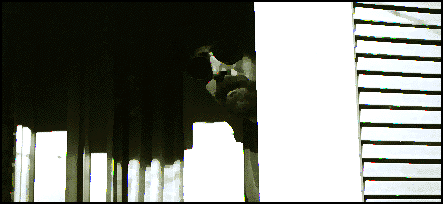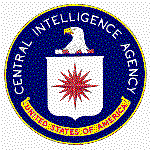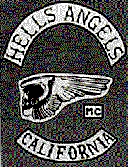|
|
|
There was a time, though, several years ago, late Spring of 1990, when I found myself worrying about the little things: the car that had been in my rearview mirror for several miles and many odd street changes, or the sonar blip somewhere in the bowels of my phone line to which I could set my watch, or whether this turn of the ignition key would be the last move I would ever make. Democratic Senator Daniel K. Inouye of Hawaii, in a closed door session of the Senate Intelligence Committee in 1978, deemed Project MK-ULTRA, "the most diabolical experiment imaginable in a democratic society." And from what I know now, from the four-plus years it took to research and complete Wisdom's Maw, I would have to agree. For over twenty years, several branches of the federal government of the United States of America - most notably the Army Chemical Corps, the Central Intelligence Agency, and the Federal Bureau of Investigation - sought as their ultimate objective nothing less than total control over human behavior. A little-known chemical compound procured from a Swiss pharmaceutical firm was to be The Key. Today, of course, we know the drug as LSD-25.
Precisely, it was the coming across the figure of one Alfred M. Hubbard in Acid Dreams, in the chapter titled "The Original Captain Trips," that would
throw me headlong into an obsession that would culminate in the
completion of a 222pp. novel surrounding Project MK-ULTRA.
After the buzz settled from my reading of Acid Dreams, I immediately set for myself the goal of knowing more about the man whom Timothy Leary called, "the great, enigmatic triple-agent," than anyone alive. It was during this period of research, between March of 1990 and the summer of 1991, that the word "paranoia" became a meaningless abstraction. I was, am, and will forever be convinced that Captain Al Hubbard was a conscious, dedicated agent of the Central Intelligence Agency, and that his astonishing career as "the Johnny Appleseed of LSD" was but a pebble on the surface of MK-ULTRA. After dozens of hours of taped conversations with the likes of Myron Stolaroff, Drs. Humphry Osmond and Abram Hoffer, Timothy Leary, and Laura Huxley, wife of the great psychedelic visionary Aldous Huxley, I was able to deliver to Steve Hager and John Holmstrom at High Times a long, investigative piece on Al Hubbard for its November 1991 issue. I was also so convinced of my being under surveillance, and that the phones at my home and place of employment (then a Big-Eight law firm) were tapped, that my wife and I moved abruptly one afternoon from Los Angeles to Salt Lake City, Utah. ("They" would need to really want to go after me, I reasoned, to follow me to Utah.) It was in the idyll of a huge, old flat with hardwood floors, just off Temple Square, in the heart of Salt Lake City, that Wisdom's Maw was completed. While in the throes of too many acid trips, drawing from Freedom of Information Act-sensitive documents, and supported by long breaks between quarters at Weber State University, where I had been hired to teach freshman English, I was able to finish off three-quarters of the novel in about eight weeks (the other one-quarter had taken four years ... it must germinate, I kept telling myself... ). The excerpting of the book in 1993 by Utah Holiday, a now-defunct glossy regional, allowed me to forget about the sound of footsteps (the phone-blips stopped after leaving L.A.), and since then, the only concern I have had is the nature of the baffling silence of virtually every major publisher in New York. Author Ernest J. Gaines (The Autobiography of Miss Jane Pittman), who spent time at Stanford in '59-60 with some of the principals in Wisdom's Maw, uttered this bottom-line conclusion after reading the manuscript, perhaps the raison d'etre of its unpublished status:
Ernest J. Gaines Indeed, appearing front and center in Wisdom's Maw - toward the novel`s premise that the CIA, using LSD, created "The Sixties" for the purpose of containing, then destroying, a burgeoning youth rebellion - are no less than Hunter S. Thompson, the Hell's Angels, Jack Kerouac, Neal Cassady, Al Hubbard and other known and suspected MK-ULTRA spooks, as well as one former Oregon wrestler who shall here go nameless. For a decade, dear readers, you have had access to as much as exists in a state of publication. The New York literary mafia, as Timothy Leary likes to call it, has sat on this Pandora's box long enough. Are you ready to open the lid? |






